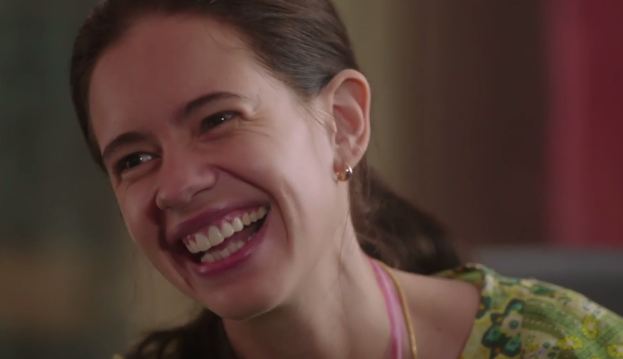Director and writer Shonali Bose after the painfully direct Amu (2005), a film that revisited the 1984 Sikh riots, is back with another story that is close to her heart. Margarita With A Straw draws from a personal tragedy and also the life of a close relative who suffers from Cerebral Palsy ( A group of permanent movement disorders). The Kalki Koechlin starrer has been received well at international film festivals and will be released across India on April 17. Kalki speaks to us about her journey into the spirit of Laila, the spunky protagonist of Margarita With A Straw.
Maysoon Zayid recently gave a TED talk about Cerebral Palsy (CP) and spoke about the need to mainstream actors and people with special needs…
I do agree that people with disabilities should be written into mainstream scripts more. For this film, just so you know, Shonali did audition people who were disabled as well, and she did not discriminate between abled or disabled actors but chose actors who she thought could pull off the physicality and emotional depth of the characters and chose me. I don’t believe only gay actors should play gay roles or only disabled actors should play disabled roles, but I do think more narratives need to be inclusive of gay or disabled characters in cinema.
I chose this film because it has a beautiful script, where a character like Laila is one every reader falls in love with for her spirit and positivity. I chose it because it opened my eyes about how we perceive the disabled in mainstream society. And I chose it because I knew it would push me as an actor.
What kind of preparation went into the role? How challenging was it to portray Laila without making her into a victim of circumstances?
Thankfully, the script never made Laila a victim. There isn’t a moment where Laila feels sorry for herself. I worked very closely and became very good friends with Malini Chib, my director’s cousin who has Cerebral Palsy. I met her physiotherapist and speech therapist, workshopped with Shonali and Adil Hussain and rehearsed everyday for many months in the wheelchair so that the physicality became habit and muscle memory.
You also said that the sexuality of specially able people is at times ignored in narratives..
Well, that was partly why this script was so original and an eye opener because we never talk about the sexuality of the disabled. Laila is a teenager with raging hormones, needing attention, being irresponsible, and learning by making mistakes. She is a regular teenager first, and just happens to have CP. I loved being part of a story that is so ordinary that everyone can relate to it, yet so uplifting that people feel overwhelmed by it. It’s hard to explain if you haven’t watched the film.
Tell us about working with Shonali and the film’s reception abroad..
Shonali is like a mother, as strict and as loving. The film was well received in many festivals. Toronto was the first screening and the first time I watched the film, after the first 10 minutes of feeling conscious of myself, I fell into the story, laughed and cried along with the audience, and the standing ovation at the end was very moving.
What have been some of the hardest aspects of this journey as an actor?
How to balance public and private life, this has been the hardest thing. How to remain candid and yet how to protect my family, friends, loved ones and myself from many misinformed public opinions, has been a challenge too.
 with The New Indian Express Reema Moudgil works for The New Indian Express, Bangalore, is the author of Perfect Eight, the editor of Chicken Soup for the Soul-Indian Women, an artist, a former RJ and a mother. She dreams of a cottage of her own that opens to a garden and where she can write more books, paint, listen to music and just be silent with her cats.
with The New Indian Express Reema Moudgil works for The New Indian Express, Bangalore, is the author of Perfect Eight, the editor of Chicken Soup for the Soul-Indian Women, an artist, a former RJ and a mother. She dreams of a cottage of her own that opens to a garden and where she can write more books, paint, listen to music and just be silent with her cats.






